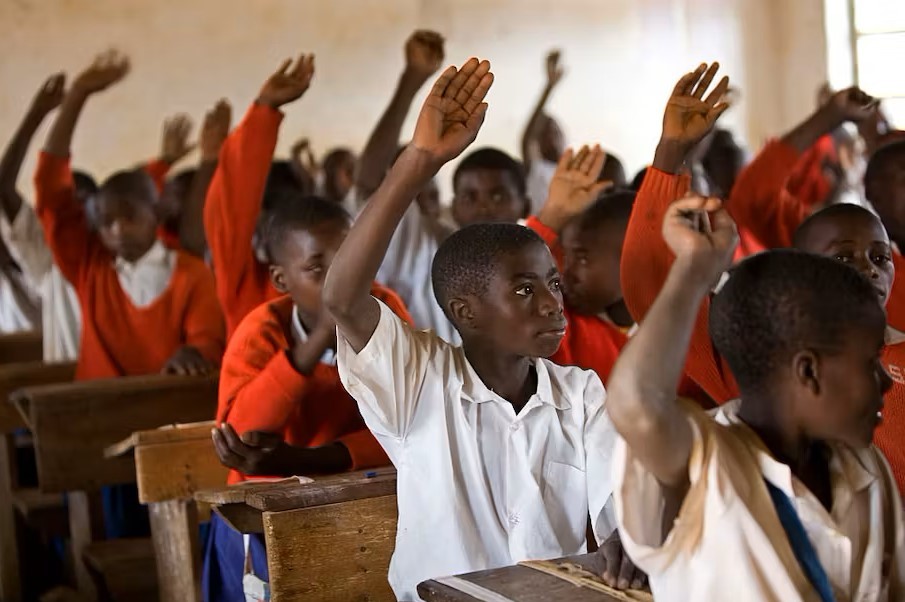Education is vital for Tanzania’s development, and the country acknowledges the necessity of transforming its education system to meet modern demands. Innovative learning models have emerged to promote critical thinking, creativity, and problem-solving skills, revolutionizing Tanzania’s education approach and preparing students for a globalized, technology-driven world. This article explores the rise of these models and their profound impact on the Tanzanian education system.
Understanding the Need for Innovation
Traditional education methods in Tanzania have faced several challenges and limitations. The emphasis on rote memorization and textbook-based learning often limited students’ engagement and creativity. The education system focused primarily on content knowledge rather than skills development, leaving students ill-prepared for the demands of the modern workforce. Additionally, the one-size-fits-all approach failed to cater to individual learning styles and needs, leading to a lack of motivation and engagement among students.
To address these challenges, innovative learning models have gained traction in Tanzania. These models prioritize student-centered approaches encouraging active participation, critical thinking, and problem-solving skills. By embracing innovation, Tanzania aims to create a more inclusive and dynamic education system that nurtures the holistic development of its students.
Exploring Innovative Learning Models in Tanzania
Various innovative learning models have been implemented in Tanzanian schools To revolutionize the education system. One such model is project-based learning, which focuses on real-world problem-solving through collaborative projects. Students work in teams to investigate, research, and propose solutions to authentic problems, enhancing their critical thinking skills and fostering a deeper understanding of the subject matter.
Another model gaining popularity is STEAM education, which stands for Science, Technology, Engineering, Arts, and Mathematics. STEAM integrates these disciplines to encourage interdisciplinary learning and creativity. It promotes hands-on activities, experiments, and project-based tasks that allow students to apply their knowledge and develop various skills.
Flipped classrooms are another innovative learning model that is being implemented in Tanzania. In a flipped classroom, students learn the content at home through pre-recorded lectures or online resources, while class time is used for interactive discussions, problem-solving, and collaborative activities. This approach allows for personalized learning and increases student engagement.
Several Tanzanian schools and programs have successfully implemented these models. The Wisdom Secondary School in Dar es Salaam has adopted project-based learning, leading to increased student engagement and a deeper understanding of subjects. The TanzICT program, supported by Tufts University and the Tanzanian Ministry of Education, promotes technological literacy and critical thinking through innovative teaching methods and digital resources.
The Impact on Student Learning Outcomes
Research and case studies have shown the positive impact of innovative learning models on student achievement in Tanzania. Implementing these models has improved critical thinking, problem-solving, and collaboration skills. Students are more engaged in learning and develop a deeper understanding of concepts. Additionally, these models support the holistic development of students, addressing their social and emotional well-being.
For example, a study by the Education Development Center in Tanzania found that project-based learning improved students’ critical thinking and problem-solving skills. Students actively researched, designed, and created solutions to community challenges, leading to a deeper understanding of academic concepts and positive community impact.
Government Initiatives and Private Sector Partnerships
The Tanzanian government has been crucial in promoting and supporting innovative learning models. The country’s Education and Training Policy emphasizes the need for student-centered approaches, critical thinking, and problem-solving skills development. The government has also introduced initiatives and policies to encourage the adoption of these models, such as the TanzICT program mentioned earlier.
Collaboration between the government, private sector, and NGOs has enhanced access and resources for implementing innovative learning models. Organizations like UNESCO and BRAC Tanzania have partnered with schools to provide teachers and students with training, resources, and ongoing support. Private sector companies have also contributed by providing technology resources, infrastructure, and mentorship opportunities.
Challenges and Opportunities
Implementing innovative learning models in Tanzania comes with challenges. Limited resources, including technology and teacher training, pose significant obstacles. Cultural resistance to change and the need for mindset shifts can also hinder the adoption of these models. Additionally, sustainability and scalability require continuous support and resources.
However, these challenges present opportunities for collaboration and knowledge-sharing among educators, administrators, and stakeholders. Building a community of practice where educators can learn from each other’s experiences and share best practices can promote the successful implementation of innovative learning models. Offering professional development programs and mentorship opportunities can address the need for teacher training and support.
Future Implications and the Path Forward
The rise of innovative learning models in Tanzania has long-term implications for the education system. These models align with the global shift towards a more skills-based and future-oriented education system. By embracing innovation, Tanzania can ensure that its students are adequately prepared for the challenges and opportunities of the future workforce.
Continuous research and evaluation of these models are crucial to ensure their effectiveness and relevance in a rapidly changing world. Collaboration with international partners and participation in global education networks can provide valuable insights and resources for sustainable implementation. Furthermore, including innovative learning models in pre-service teacher training programs can develop a generation of well-equipped educators to deliver quality education.
The rise of innovative learning models in Tanzania represents a promising educational system shift. These models prioritize critical thinking, creativity, and problem-solving skills, enabling students to thrive in the 21st century. By embracing innovation, Tanzania has the opportunity to revolutionize its education landscape and ensure that its students are well-prepared for the challenges and opportunities of the future.
Read more insightful articles here.

